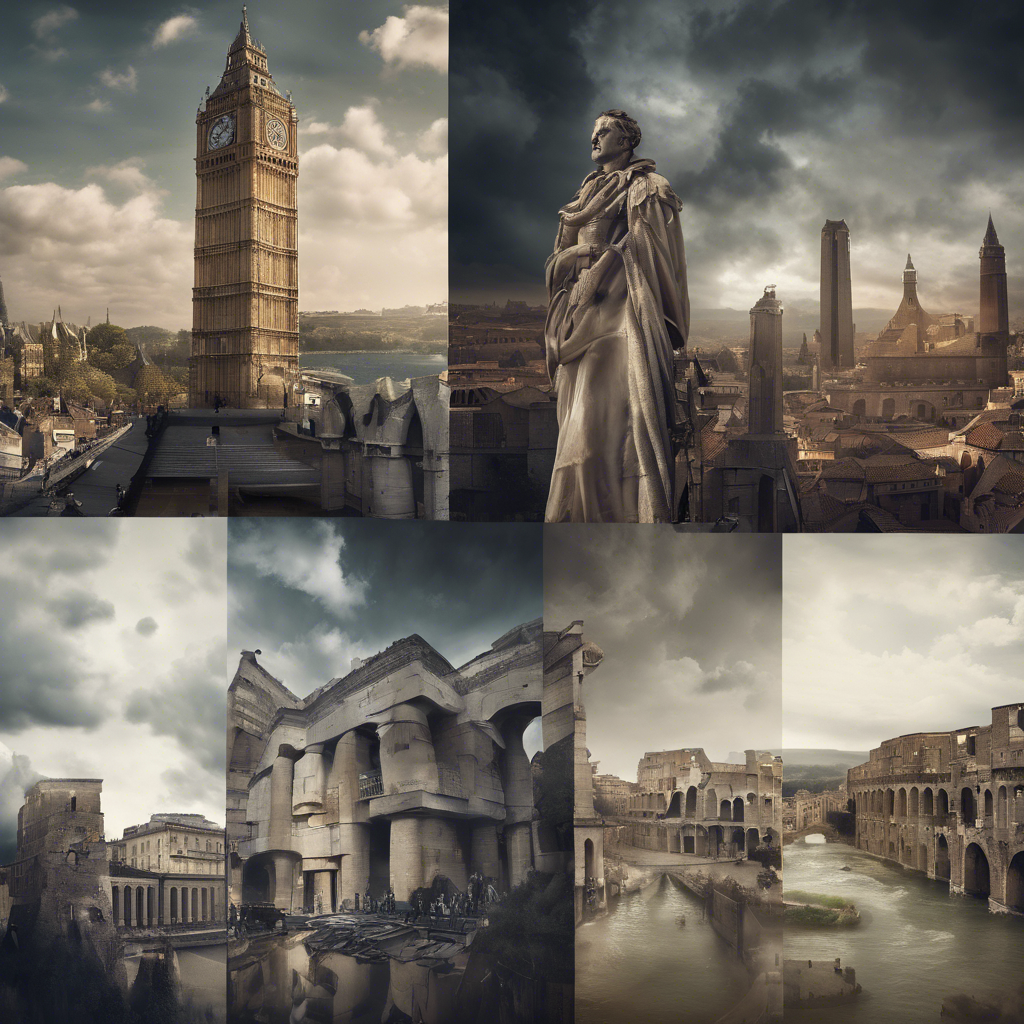The Most Influential Countries in World History
- ChatVariety

- Jul 9, 2024
- 4 min read
In the tapestry of civilization, certain countries have woven themselves into the fabric of human history with remarkable influence and impact. From ancient empires to modern superpowers, these nations have left an indelible mark on the world stage. Let's delve into a list of the most influential countries in world history, exploring their contributions, legacies, and enduring significance.

1. Egypt

Ancient Egypt, with its rich history and remarkable achievements, remains a beacon of human civilization. The land of pharaohs and pyramids, Egypt stands as a testament to the incredible ingenuity and creativity of its people. The monumental architecture of the pyramids, the intricate hieroglyphic writing system, and the advancements in mathematics and governance all showcase the remarkable intellectual prowess of the ancient Egyptians.
Furthermore, the legacy of the Nile Valley civilization extends far beyond its borders, influencing cultures and societies around the world. The mysteries of the ancient Egyptian religion, the sophistication of their art and craftsmanship, and the intricate burial practices all contribute to the enduring fascination with this ancient civilization.
Exploring the wonders of Ancient Egypt reveals a society that was not only technologically advanced for its time but also deeply spiritual and culturally rich. The intricate rituals surrounding death and the afterlife, the reverence for the natural world, and the complex social structures all provide a glimpse into the complexities of ancient Egyptian society.
2. Greece

The cradle of Western civilization, ancient Greece, holds a profound legacy that continues to shape the world today. Situated in the southeastern region of Europe, Greece emerged as a hub of innovation and enlightenment, giving birth to fundamental concepts that have endured through the ages.
One of the most significant contributions of ancient Greece is the establishment of democracy, a revolutionary form of government that prioritized the voice of the people. This democratic system, first implemented in Athens, laid the groundwork for modern governance structures around the globe, emphasizing citizen participation and the rule of law.
Besides politics, ancient Greece also fostered a rich tradition of philosophy, with luminaries such as Socrates, Plato, and Aristotle shaping intellectual discourse for generations to come. Their profound insights into ethics, metaphysics, and logic continue to influence contemporary philosophical thought, offering timeless wisdom and critical thinking tools.
Furthermore, the arts flourished in ancient Greece, with monumental achievements in architecture, sculpture, drama, and literature. The grandeur of structures like the Parthenon, the emotional depth of tragedies by playwrights like Sophocles and Euripides, and the enduring epics of Homer's Iliad and Odyssey stand as testaments to Greece's artistic prowess and cultural richness.
From the heights of Mount Olympus, where gods and goddesses reigned, to the bustling agora where citizens debated and traded ideas, ancient Greece was a vibrant tapestry of diverse influences and profound achievements. Its intellectual and cultural heritage endures as a beacon of inspiration, reminding us of the transformative power of human creativity and ingenuity.
3. Rome

The Roman Empire stands as a monumental chapter in the annals of human civilization, casting a shadow that stretches far and wide across the tapestry of history. Spanning vast territories across Europe, Africa, and Asia, Rome's dominion left an indelible mark on the world, shaping not only the landscapes it conquered but also the very fabric of society itself.
From the grandeur of the Colosseum to the intricate engineering of aqueducts and roads, the architectural legacy of Rome continues to awe and inspire generations centuries after its fall. The enduring influence of Roman governance, with its intricate system of laws and administrative structures, can be seen in modern political systems around the globe.
Furthermore, the Latin language, once the lingua franca of the Roman Empire, has left an enduring imprint on numerous modern languages, serving as the foundation for many words and phrases used today. The legacy of Rome's language can be observed in legal terminology, scientific nomenclature, and even everyday expressions.
Thus, the profound impact of the Roman Empire extends far beyond its physical borders, resonating in the architecture we admire, the laws we uphold, and the words we speak, a testament to the enduring legacy of one of history's greatest civilizations.
4. China
With a rich tapestry of dynasties, philosophies, and inventions, China has wielded significant influence over millennia. The Great Wall, the Silk Road, and Confucian ethics are but a few cornerstones of China's enduring impact on global culture.
5. United Kingdom
From the height of its imperial power to its role in shaping modern democracy and industry, the United Kingdom's legacy is far-reaching. Shakespeare's plays, the Industrial Revolution, and the English language underscore Britain's lasting contributions to the world.
6. United States
As a beacon of liberty and innovation, the United States has shaped the modern world through its democratic ideals, technological advancements, and cultural exports. From Hollywood to Silicon Valley, America's global influence is ubiquitous.
7. France
France's cultural influence, from art and literature to cuisine and philosophy, has permeated global society. The French Revolution, the Eiffel Tower, and the legacy of thinkers like Descartes and Voltaire highlight France's enduring impact.
Conclusion
As we reflect on the most influential countries in world history, we see a mosaic of civilizations that have sculpted the world we inhabit today. Each nation's unique contributions, be it in art, science, philosophy, or governance, have left an indelible imprint on the tapestry of human civilization. By understanding and appreciating the legacies of these influential countries, we gain insight into the interconnectedness and richness of our global heritage.






Comments